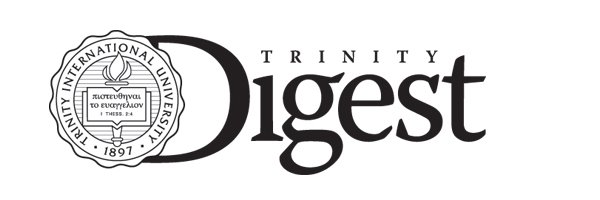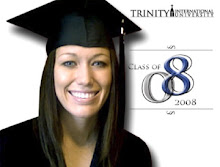Friday, February 02, 2007
Bioethics Lecture Series Sheds Light on Stem Cell Research
Cloning and stem cell research are on-going controversial and intimidating issues for a lot of people, causing many to become weary and turned-off. But local disinterest and confusion were discarded Thursday evening as Trinity International University (TIU) Professor of Bioethics John Kilner, Ph.D., told the truth about bioethics to an audience of 50 at the Kenneth Kantzer auditorium.
Stem cells are primal cells that have the ability to renew themselves, divide and grow into a range of desired tissues, such as nerves and muscles. These new tissues are used to replace damaged ones, ultimately improving quality of life for everyone.
Kilner’s listeners left with a firm grasp on the difference between the two basic forms of stem cells: adult (obtained without harming human life) and embryonic (obtained by destroying human embryos), and the ethical issues that ensue. But what they didn’t know is that they would leave with an awareness about the lack of scientific researchers who engage in truthful communication about stem cells.
“Why do we so often try to mislead people, to gain some sort of benefit,” said Kilner, “when it so often backfires in our face?” His concern is that truthful communication; what one says and what one understands, has been replaced by Utilitarianism communication; deception used to advance scientific research that harms the vulnerable.
Potential beneficiaries include: those who are ill or injured, subjects of research; human embryos, and sources of materials; those who donate eggs or somatic cells are being exploited through this deception. The corruption can be traced among scientific circles engaged in embryonic stem cell research.
In 2004 South Korean cloning researcher Hwang Woo-suk claimed to successfully clone human embryos – a medical breakthrough at the time. In 2005 an investigation found that the eggs were purchased and the research was fabricated.
In 2006, Advanced Cell Technology (ACT) removed a single cell from an embryo without harming it, claiming “early embryos can yield stem cells and survive.” Just one problem: all the embryos used in the experiment were destroyed. In a total of ten experiments, ACT implied that 16 cells were removed from 16 embryos, and two stem cell lines were created as a result.
A research investigation found that the two stem cell lines were actually a result of 91 cells that were harvested from the 16 embryos, causing their inevitable deaths.
“History is littered with misguided attempts to relieve suffering by cutting ethical corners,” said Kilner. Putting an end to suffering can also be achieved through adult stem cells, but promoters of embryonic stem cells often disregard ethical routes based on the current assumption that an embryonic stem cell can grow into any cell.
Misleading language is used to smokescreen the fact that producing the desired cells from embryos “requires cloning human beings and then destroying them. Cloning and killing are too high an ethical price to pay,” said Kilner.
Stem cell debates are not about science versus religion, but an entire mindset; biological versus philosophical, according to Kilner. “Is an embryo a ‘being’ or just ‘some cells’? – An adult could be called ‘some cells’,” he said, but scientists don’t kill adults to advance their research.
In 1933, 399 African-American men in Alabama diagnosed with syphilis were untreated and exploited in order for scientists to conduct research on the phases of the disease. It was not uncovered until 1972 that 28 men had died of syphilis, 100 others were dead due to syphilis related complications, at least 40 wives had been infected and 19 children had contracted the disease at birth. None of the patients were told that they were being used for medical research.
Because of studies like Tuskegee, the National Research Act law was passed to protect human subjects from being reduced to lab rats. But this law doesn’t protect human embryos, because the human status of an embryo is still up for debate. To eliminate the ethical dilemma, some scientific authorities redefined an embryo as not human up to two weeks after conception, and some up to eight weeks.
Kilner recognizes these redefinitions as “fancy word plays” that cause a “pressing need for truthful communication” and a call for citizens to “avoid sweeping dismissals” about the effectiveness of adult stem cells.
The National Institutes of Health account for 14 stem cell studies that report adult stem cell plasticity – a wide range of potential for growing and dividing into desired cells. Several science journals have recognized adult stem cells as pleuripotent, including Northwestern University, University of Pennsylvania, and the University of California, Berkeley.
The Coalition of Americans for Research Ethics “Do No Harm” keeps score of stem cell research treatments for diseases – Adult Stem Cells; 72 (including 26 cancers), Embryonic; 0. The “Do No Harm” website is maintained at TIU’s Center for Bioethics.
“There is another safe way to develop the same cures,” said Kilner, who was referring to recent developments in amniotic-fluid stem cells found in the placenta. Adult stem cells are not the only ethical means for advancing research.
This year a study has been published that found amniotic-fluid stem cells are “readily available, perhaps ethically trouble-free and possibly as powerful and flexible in function as their embryonic counterparts.”
“Telling the Truth in Bioethics: Stem Cell Research, Cloning, and Beyond” is only the first bioethics seminar of a series of three held by TIU. The presentations, free and open to the public, are held at 7:00 p.m. in the Kantzer Auditorium. Future seminars are scheduled for Feb. 22 with Lawndale Christian Health Center CEO Arthur Jones and Mar. 15 with Wheaton College Philosophy Professor of Faith and Learning Dr. E. David Cook.




